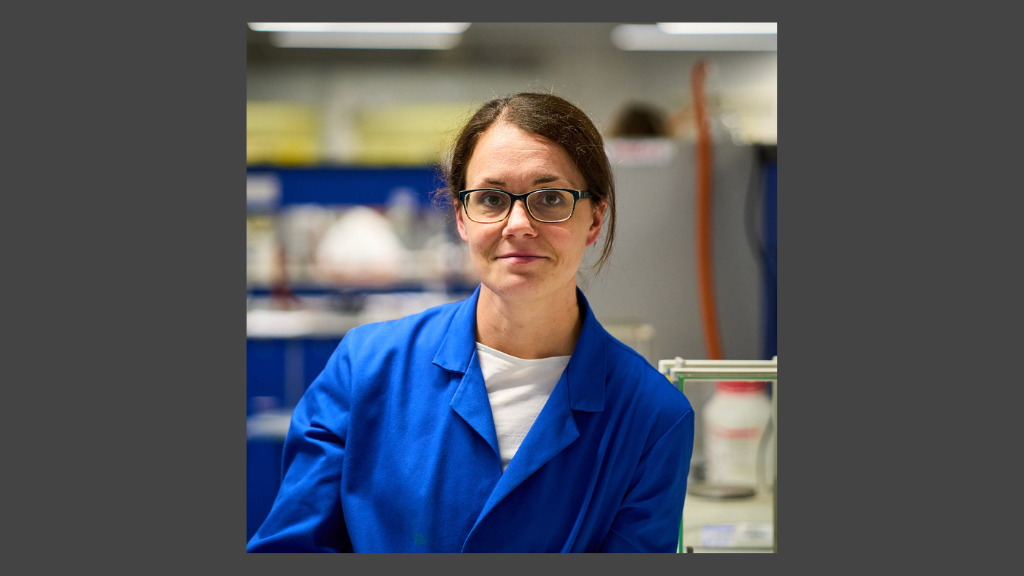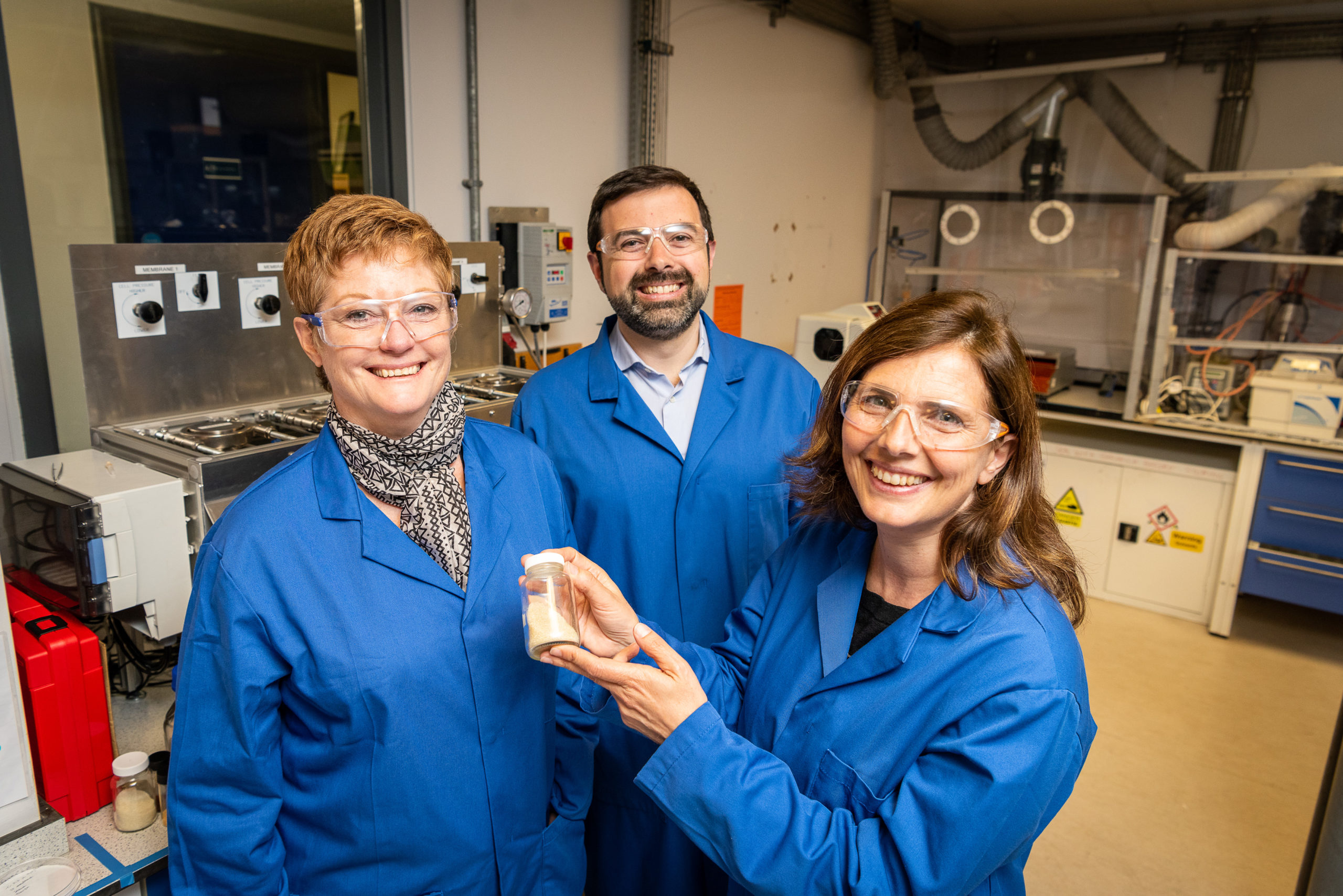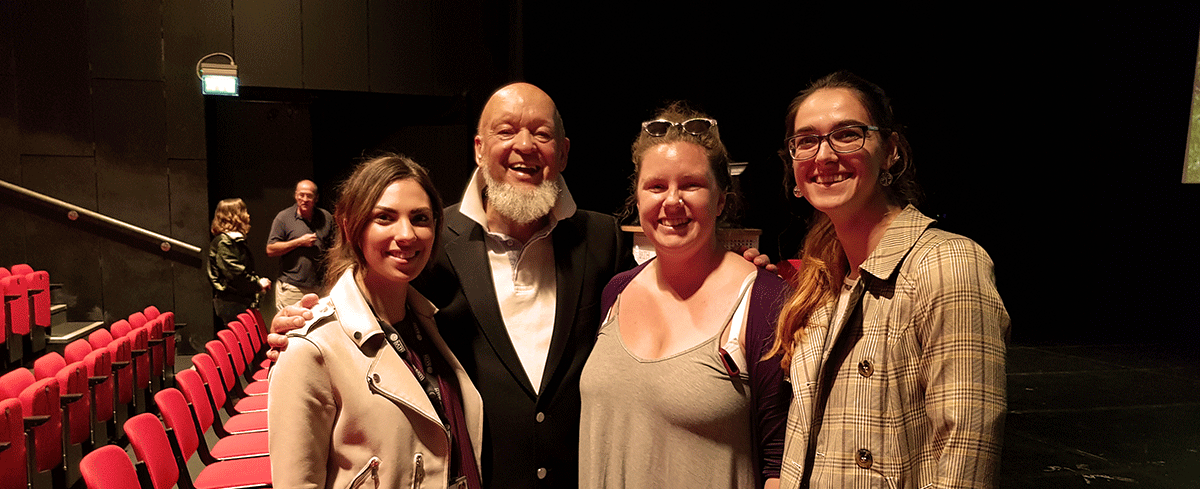
CSCT scientist wins prestigious Royal Society of Chemistry Prize
Dr Ruth Webster is named winner of the Royal Society of Chemistry’s 2022 Dalton Division early career award: Sir Edward Frankland Fellowship.
Dr Ruth Webster, Reader in the University of Bath’s Centre for Sustainable & Circular Technologies and Department of Chemistry, has been named winner of the Royal Society of Chemistry’s 2022 Dalton Division early career award: Sir Edward Frankland Fellowship.
Dr Webster won the prize for outstanding research including mechanistic elucidation of iron-catalysed, atom-efficient transformations of main group elements. They join a prestigious list of past winners in the RSC’s prize portfolio, 60 of whom have gone on to win Nobel Prizes for their work, including 2016 Nobel laureates Jean-Pierre Sauvage, Fraser Stoddart and Ben Feringa and 2019 Nobel laureate John B Goodenough.
Dr Webster also received £3,000 and a medal.
After receiving the prize, Dr Webster said: “I am extremely honoured to be awarded this prize, but it has only been possible through the hard work of my group (past and present) and the encouragement from my supervisors and mentors (from my time as an undergraduate at Strathclyde through to now).”
Catalysis is essential for a sustainable future, not least because it enables us to make chemicals in a more environmentally-friendly way. Allowing chemical reactions to run faster at a lower temperature makes the preparation of key chemicals easier and more cost-efficient. However, there is a growing need to replace precious metals in catalysis (such as ruthenium, rhodium, iridium and palladium) with more readily available base metals (such as iron, titanium and aluminium).
The British Geological Society has listed the platinum group metals as being at severe risk because of their limited supply and the geopolitical issues surrounding them. In order to enable base metals to replace platinum group metals as catalysts, we will need to understand the mechanisms for how these metals behave in reactions. Dr Webster’s research focuses on iron complexes –seeking to understand the mechanisms of their reactions– with a view to using them as catalysts for a variety of applications in the future.
Dr Helen Pain, Chief Executive of the Royal Society of Chemistry, said: “Great science changes the way we think about things –either through the techniques used, the findings themselves, the products that emerge or even in how we interact with the world and those around us. Importantly, it also allows us to reflect on the incredible people involved in this work and how they have achieved their results.
“Although we are in the midst of negotiating a particularly turbulent and challenging era, it is important to celebrate successes and advances in understanding as genuine opportunities to improve our lives. The work of Dr Webster is a fantastic example of why we celebrate great science, and we’re very proud to recognise their contribution today.”
The Royal Society of Chemistry’s prizes have recognised excellence in the chemical sciences for more than 150 years. In 2019, the organisation announced the biggest overhaul of this portfolio in its history, designed to better reflect modern scientific work and culture.
The Research and Innovation Prizes celebrate brilliant individuals across industry and academia. They include prizes for those at different career stages in general chemistry and for those working in specific fields, as well as interdisciplinary prizes and prizes for those in specific roles.







